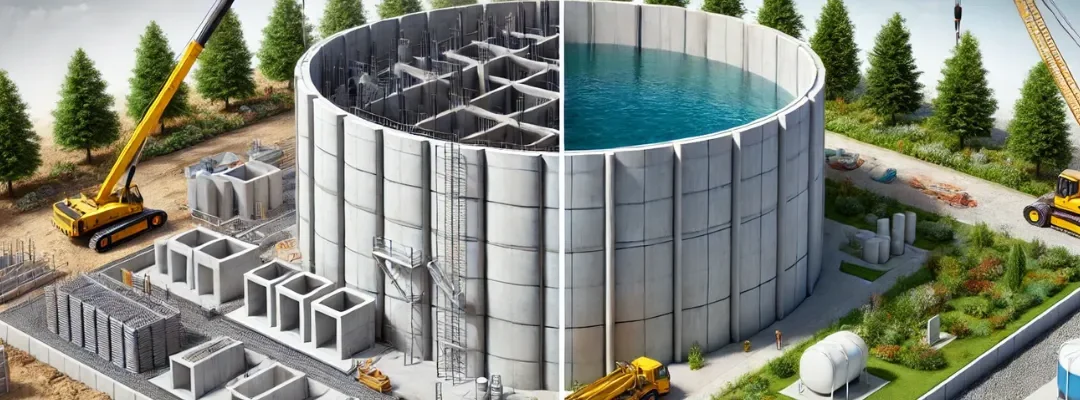When planning a water storage solution, one of the most important decisions is choosing between precast and permanent (in-situ) water storage tanks. Each option has distinct advantages depending on your project’s requirements. Below, we break down the key differences to help you make an informed decision.
Construction Process
- Precast Tanks are manufactured in a controlled factory environment using molds and then transported to the installation site.
- Permanent Tanks are built on-site using concrete, bricks, or other materials, forming an integral part of the building’s structure.
Installation Time
- Precast Tanks offer faster installation since the components are prefabricated. It’s ideal for projects with tight deadlines.
- Permanent Tanks take more time due to on-site construction, curing, and weather dependencies.
Cost Considerations
- Precast Tanks are generally more budget-friendly due to lower labor costs and scalable manufacturing.
- Permanent Tanks involve higher costs related to on-site labor, extended timelines, and custom materials.
Durability and Strength
- Precast Tanks are highly durable but may have limitations in size and adaptability due to transport constraints.
- Permanent Tanks can be engineered for greater strength and customized to endure extreme environmental conditions.
Customization Options
- Precast Tanks are limited to standardized shapes and sizes.
- Permanent Tanks can be tailored in terms of capacity, layout, and material, based on site-specific needs.
Portability
- Precast Tanks can be relocated if necessary, making them suitable for temporary or mobile installations.
- Permanent Tanks are immovable, as they are integrated into the property structure.
Maintenance and Accessibility
- Precast Tanks are easier to maintain or replace since they’re stand-alone units.
- Permanent Tanks may require invasive and costly repairs due to their integration with the surrounding infrastructure.
Typical Use Cases
- Precast Tanks are ideal for rural developments, emergency setups, and sites with limited construction capabilities.
- Permanent Tanks are commonly used in large-scale residential complexes, industrial facilities, and long-term infrastructure projects.

